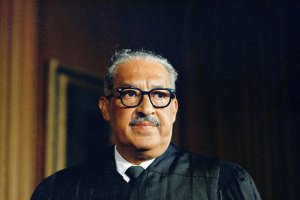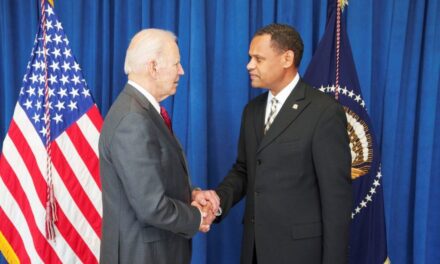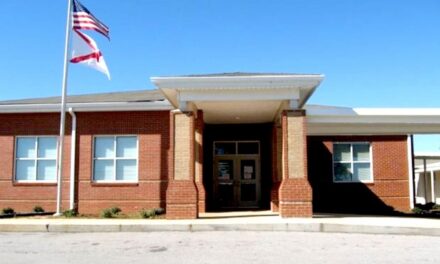By Aria Brent,
AFRO Staff Writer,
abrent@afro.com
On Sept. 13 people gathered from far and wide at Faith Christian Fellowship to celebrate the life and legacy of Lawrence Lacks Sr. The patriarch of the Lacks family died from liver disease complications at the Baltimore VA Medical Center on Aug. 26.
Lacks was 88 years old and the last living child of Henrietta Lacks, a Black woman whose cervical cancer cells were taken without her permission or knowledge in 1951. Known as the “HeLa” cells, they went on to be used in a series of medical experiments and breakthroughs, including research to develop vaccines for polio, COVID-19 and in vitro fertilization.
“Lawrence’s life without a doubt is a testament to an enduring spirit of resilience, humility, love and respect,” said U.S. Rep. Kweisi Mfume, as he recalled Lacks’ life. “Lawrence, you went on to serve your country, distinguish yourself, be a small business owner, break barriers at Amtrak and never let go of the memories that so many of us shared in Turner Station. And you never let go of your commitment to make sure that your mother’s legacy would be honored.”
Lacks’ death came only three weeks after the family’s first legal settlement with the Massachusetts-based biotech company Thermo Fisher Scientific for profiting off the use of his mother’s cells.
The Lacks family moved to Maryland from Clover, Va., when Lawrence was just a young boy. They lived in Turner Station, one of the oldest Black communities in the Baltimore County area. Once his mother became ill and even before her death he was responsible for taking care of his younger siblings, but that was no task for him. He was remembered as a selfless, reliable and kind-hearted person.
“He was a stately man of great character and presence,” said the Rev. Dr. Franklin Lance, senior at Mt. Lebanon Baptist Church. “Lawrence made his days count. He made his voice and advocacy count. He made his patriarchal role count. He made his life count.”
“He was so grounded in his life, in his duties, his abilities and in who he was, that I often kept waiting for him to pull back his shirt so the ‘S’ would show,” Lance said, making a reference to the fictional hero Superman. “He was a man of accountability and he took his responsibilities seriously.”
The minister read the obituary for the homegoing ceremony and recapped the many accomplishments Lacks had throughout the years. He was a graduate of Baltimore City Public Schools and served in the U.S. Army as a medic. Once he returned home from serving in the military, he worked at Bethlehem Steel Yard and then went on the blaze trails at Amtrak by working as the first Black engineer for the national railroad passenger corporation.
On Feb. 26, 1962, he married his wife, Bobbette and they had three children, Ron, LaDonna and Lawrence Jr. Following his retirement from Amtrak, he and his wife opened a series of businesses, including an insurance agency, a confectionary store and Lacks Meats Palace. However, Lacks is most recognized for having spent the majority of his life relentlessly fighting for justice and ownership of his mother’s “HeLa” cells and, above all, his family’s name.
“What happened to Henrietta Lacks was a symptom of what happened to so many Blacks. What made them (the Lacks family) great was not her suffering; what made them great was that they would not allow her suffering to go unaddressed,” said the Rev. Al Sharpton during his eulogy of Lacks.
Lacks and his family spoke with the AFRO in 2017 to tell their side of the story regarding the fight for justice and Henrietta Lacks’ legacy.
There was a series of speakers at Lawrence Lacks’ service, and they all talked in grave detail about how personable and humble Lacks was despite his résumé of monumental achievements.
“You learn that God uses ordinary people to do extraordinary things and sometimes your familiarity to them robs you of their greatness. The Lacks family should not be taken for granted,” said Sharpton. “This man had endurance and tenacity in everything he did and he didn’t have to be a show-off to do it.”
Mfume shared similar sentiments, saying that Lacks had a timeless influence that will continue to be felt in the Baltimore community.
“Our community and our state have lost an unsung hero. A man of great character, strength and compassion. And in remembering him I hope and I pray that we will find a way to be comforted by words in the Bible,” Mfume said. “In John 14:2 [it says], ‘In my Father’s house are many mansions: if it were not so, I would have told you. I go to prepare a place for you. And if I go and prepare a place for you, I will come again, and receive you unto myself; that where I am, there ye may be also.’”
Lacks is survived by a plethora of family and friends including his six children, their spouses, and many grandchildren, great-grandchildren and extended family.
The post Remembering the life of Lawrence Lacks Sr. appeared first on AFRO American Newspapers .











